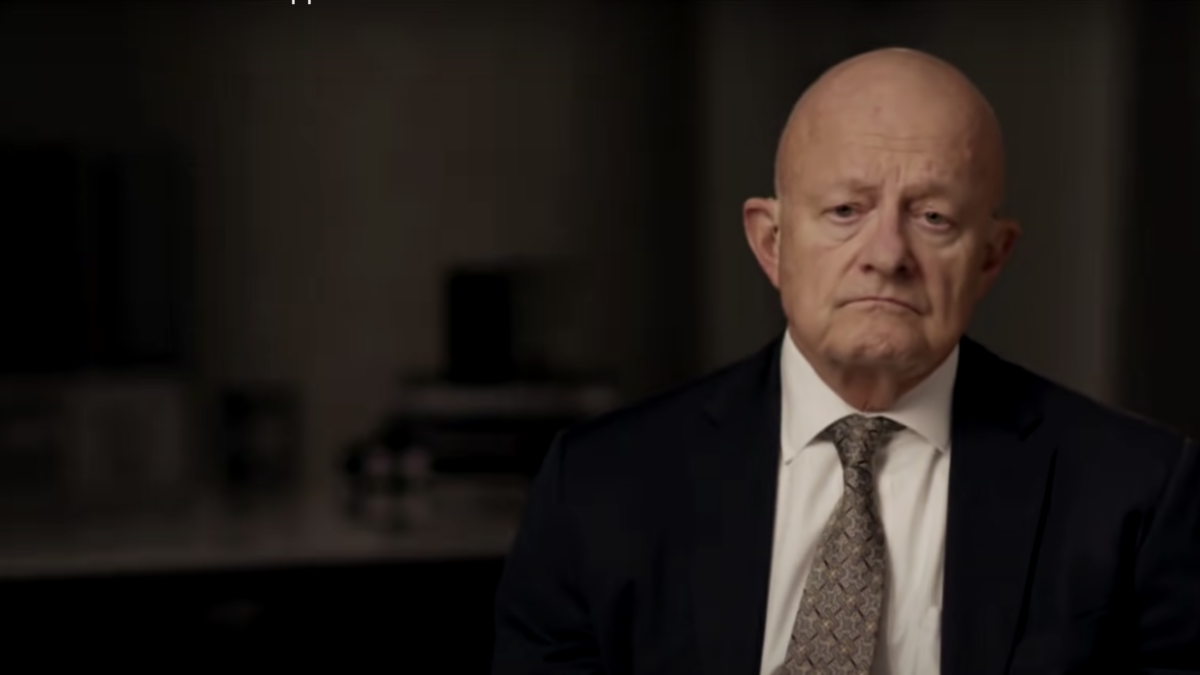Former Director of National Intelligence James Clapper may sit on the executive board of the University of Pennsylvania’s Center for Ethics and the Rule of Law, but his track record shows he’s no truth-telling, law-abiding saint.
The Center for Ethics and the Rule of Law claims to be a “non-partisan interdisciplinary institute” dedicated to promoting ethics and the rule of law inside and outside of government, but Clapper’s resume shows he has not done that.
Like many other U.S. intelligence officials, Clapper participated in the collective effort to undermine Donald Trump’s run for president in 2016. The career bureaucrat leaked information about the discredited Steele dossier to CNN’s Jake Tapper with the hopes of aiding the network’s anti-Trump coverage. The CNN anchor used that confidential information to write an article summarizing the dossier’s contents and noting that the allegations were disclosed to Trump by then-FBI Director James Comey.
Shortly after the leak, Clapper was hired by CNN as a national security analyst.
When Congress pressed Clapper in 2018 on his role in promoting the Russia collusion hoax, Clapper “provided inconsistent testimony to the Committee about his contacts with the media, including CNN,” according to a report by the House Intelligence Committee. At first, Clapper claimed he never passed along key information to reporters. Later, he “admitted that he might have spoken with other journalists about the same topic.”
That wasn’t Clapper’s first time lying to Congress. In 2013, Clapper falsely testified that the Obama administration’s National Security Agency does not conduct mass surveillance on Americans.
“Does the NSA collect any type of data at all on millions, or hundreds of millions, of Americans?” Sen. Ron Wyden, a Democrat from Oregon, asked during a congressional hearing.
“No, sir. … Not wittingly,” Clapper replied. “There are cases where they could inadvertently, perhaps, collect. But not wittingly.”
Mere months later, former NSA subcontractor Edward Snowden released documents showing that the NSA was, in fact, spying on millions of Americans by collecting domestic phone records and online communications.
Several lawmakers called for Clapper to be charged for lying under oath. Democrats such as Former Senate Intelligence Committee Chairwoman Dianne Feinstein, however, defended Clapper even when he lied about lying.
To add to his ethical problems, Clapper was the first of 51 intelligence officials who signed the infamous 2020 letter smearing Hunter Biden’s laptop as “Russian disinformation.” Current intelligence leaders confirmed that there was never any evidence that the laptop story was disinformation, yet the “Russian disinformation” theory was wielded by the retired intelligence community, corporate media, Democrats, and Big Tech to suppress any information that could hurt Joe Biden’s presidential chances.
Clapper’s abysmal track record when it comes to ethical conduct and telling the truth should disqualify him from sitting on the board of an institution that brags about “preserving and promoting the rule of law in twenty-first century national security, warfare, and democratic governance,” but so far it hasn’t.
The Center for Ethics and the Rule of Law did not respond to The Federalist’s questions about why Clapper is considered eligible by the University of Pennsylvania to hold a leadership position at an organization that claims to promote those values.









